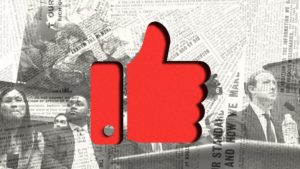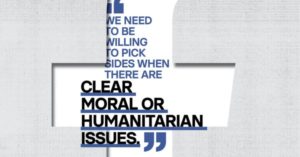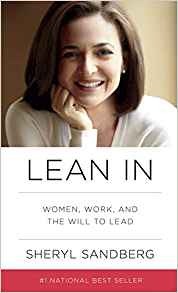It must change. Or go dark.
December 27, 2020From Seth Godin.
Amplify Possibility
“People like us do things like this.”
Social media understands this.
It also knows that people like points, likes and something that feels like popularity.
The social media companies optimized their algorithms for profit. And profit, they figured, would come from engagement. And engagement, they figured, would come from confounding our instincts and rewarding outrage.
Because outrage draws a crowd.
And crowds establish culture.
And a desire to be the leader of a crowd reinforced the cycle.
And so the social networks created a game, a game in which you ‘win’ by being notorious, outrageous or, as they coined the phrase, “authentic.” The whole world is watching, if you’re willing to put on a show.
That’s not how the world actually works. The successful people in your community or your industry (please substitute ‘happy’ for successful in that sentence) don’t act the way the influencers on Twitter, YouTube or Facebook do. That’s all invented, amplified stagecraft, it’s not the actual human condition.
Many of us have an overwhelming need to rubberneck, to slow down when we pass a crash on the highway. This is odd, as most people don’t go out of their way to visit the morgue, just for kicks. And yet…
I hope we’d agree that if people started staging car crashes on the side of the road to get attention, we’d be outraged.
That’s what happening, and the leaders of social networks pretend that they can’t do a thing about it, just as Google pretends that they can’t control the results of their search algorithm.
The shift that the leaders of the social networks need to make is simple. In the long run, it will cost them nothing. And within weeks, it will create a world that’s calmer, happier and more productive.
Amplify possibility. Dial down the spread of disinformation, trolling and division. Make it almost impossible to get famous at the expense of civilization. Embrace the fact that breaking news doesn’t have to be the rhythm of our days. Reward thoughtfulness and consistency and responsibility.
You can do this. Enough already.
The Public Square of Spirit & Compassion & Disinformation
November 21, 2019Sister of Social Service Simone Campbell of Social Service Simone Campbell is an author, lawyer, poet, and Executive Director of NETWORK, an organization that lobbies on issues of economic justice, immigration reform, and healthcare.
My faith impels me into the public square. It is abundantly clear that Pope Francis is correct when he says that faith has real consequences in the world . . . and these consequences involve politics. . . . Religion/politics is at the heart of my contemplative practice. I am nourished daily by the people I meet and whose stories I hear. My heart is broken open by the truth of their hunger and hope. It is not a theoretical reality for me. My meditation has become breath, that we might see, that we might walk, and, in the process, heal our society that is famished for community and knowing that we belong to each other. . . .
No one can be left out of my care. Therefore [our] political work is anchored in caring for those whom we lobby as well as those whose cause we champion. This was illustrated for me recently when I was . . . lobbying a . . . Senator. . . . I commented on the story of a constituent and asked her how her colleagues could turn their eyes away from the suffering and fear of their people. The conversation went on a bit, and then the senator came back to my question. She said that . . . they did not get close to the candid stories of their people. In fact, some did not see these constituents as “their people.” Tears sprang to my eyes at her candor and the pain that keeps us sealed off from each other because of political partisanship. . . .
In many ways, we are a bit like the senators who close themselves off from the needs of their constituents. We could get caught in the pain of rejection and blame, fighting against an unjust judgment. But for me, the contemplative perspective leads to letting go of my desires and control while opening to the gift of the moment. My consistent learning is that behind the loss is always a surprise, opening into something new. There are prices to be paid, but they are small when compared to the hunger of our people. . . .
My prayer has led me to compassion. Compassion often leads to much more nuanced analysis. . . . The Spirit has pushed us out of our comfort zone of acceptability in order to meet the needs of people we had not known were ours. . . .
-Center for Action and Contemplation
As a platform for disinformation, it is a weapon. To be used intentionally as a platform for disinformation, it is an atomic bomb.
AXIOS
Ad targeting is how Facebook, Google and other online giants won the internet. It’s also key to understanding why these companies are being held responsible for warping elections and undermining democracy, managing editor Scott Rosenberg writes in the opening installment of our “What Matters 2020” series.
- Critics and tech companies are increasingly considering whether limiting targeting of political ads might be one way out of the misinformation maze.
- Giant platforms would still allow campaigns and candidates to purchase political ads — but the companies would stop (either voluntarily or by law) selling messages aimed only at narrow segments of the electorate.
How ad targeting works: Facebook and Google have somewhat different systems for targeting ads, but both allow advertisers to bid on narrowly defined demographic groups or keywords.
- For instance, you can tell Facebook to show your message only to Southern men who don’t have a college degree and earn less than $75,000 — or ask for married suburban moms in three ZIP Codes outside Indianapolis who own SUVs and play tennis.
- In the political ad world, these tools allow candidates and groups to exploit those populations’ anxieties and resentments, efficiently.
The link between ad targeting and misinformation … Tech platforms stand accused of multiple sins, including:
- Improperly collecting users’ data to build massive databases of profiles.
- Allowing politicians and their campaigns to spread lies.
- Creating partisan “echo chambers” and “filter bubbles” that segment reality by ideology.
Facebook and Google didn’t invent these phenomena — they existed pre-internet. But by tying them together, ad targeting can kick misinformation into overdrive:
- Data collection and profile building is what makes ad targeting possible. It’s also what keeps getting tech platforms in trouble with users and governments.
- Campaigns have always shaded the truth and even lobbed false accusations. But in a broadcast world, it was easy for opponents and neutral third parties to witness and call out such behavior.
- In the world of micro-targeted ads, it’s almost impossible — despite transparency efforts like Facebook’s ad library.
- Misleading ads fuel frenzies in the closed-loop worlds of partisan echo chambers long before platforms can step in to bar them.
Banning all political ads vs. banning targeting: Many critics have urged social media platforms to bar political advertising altogether — a move both Google and Facebook have resisted, even as their smaller but politically high-profile competitor Twitter said it would embrace it.
- Facebook argues that such a ban would harm outsider candidates and causes.
- Twitter’s ban is significant, but its ad market share and targeting capabilities are minuscule compared to Facebook’s and Google’s.
The idea of a targeting ban has gained momentum recently, with figures like Bill Gates and FEC chair Ellen Weintraub endorsing it.
- Defenders of the status quo argue that online targeting isn’t fundamentally different from longtime campaign practices like ZIP Code targeting of postal flyers, and they maintain that it’s a free-speech issue.
The Guardian
‘DT, hosted the Facebook chief executive Mark Zuckerberg for a private dinner at the White House last month.
NBC News revealed that the meeting, which had not previously been disclosed, took place when Zuckerberg was in Washington being grilled by Congress over topics including Facebook’s limited steps to ban to misinformation in political advertising.
NBC (also) reported the billionaire entrepreneur Peter Thiel, a conservative who donated to Trump’s 2016 campaign and sits on Facebook’s board, was also present at the meeting.’
Thiel, who is the chairman of private data technology company Palantir, donated $1.25m to DT’s 2016 presidential campaign. In August a report by Mijente, a Latinx organizing not-for-profit, found that Palantir has more than $1.5bn in federal government contracts.
[According to Forbes, Thiel has a net worth of $2.5 billion.]
#PeterThiel
Huffington Post
“…an essay published in 2009, (Thiel) surprised many when he wrote that giving women the right to vote — by constitutional amendment in 1920 — was a blow to democracy.”
FB’s News Tab: #manipulation
August 20, 2019Thomas Merton:
Nothing is more empty and more dead, nothing is more insultingly insincere and destructive than the vapid grins on the billboards and the moronic beatitudes in the magazines, which assure us that we are all in bliss right now.
[AXIOS]
News Tab
Facebook executives tell me they’re hiring seasoned journalists to help curate a forthcoming “News Tab” that they hope will change how millions get news.
News Tab, a personal passion of CEO Mark Zuckerberg, is also an effort by Facebook to develop a healthier relationship with publishers, many of whom have had their business models destroyed by social platforms.
Campbell Brown, Facebook’s head of news partnerships, said: “Our goal with the News tab is to provide a personalized, highly relevant experience … The majority of stories people will see will appear in the tab via algorithmic selection.”
Last year, Facebook killed Trending Topics, populated by contractors, after being accused of bias.
What’s next: A News Tab test for 200,000 users will begin in October, with a rollout to all U.S. users early next year. |
Profit manipulation:
‘The Wall Street Journal reported that the largest partners will be paid millions of dollars a year.’
Gatekeeper manipulation:
‘A small team of journalists will pick stories for a Top News section.’
Pick a side.
July 24, 2018The note, titled “A Difficult Week,” came six days after stories in the New York Times and the Observer revealed how political consulting firm Cambridge Analytica had obtained and exploited the data of millions of Facebook users for political advertising purposes. After those revelations, Stamos, who had reportedly previously clashed with other executives over Facebook’s handling of Russian state-sponsored misinformation and election interference on the platform, confirmed his plans to leave by August. According to the post, his departure had long been in the works following an internal reorganization that left him with fewer responsibilities, and it was not directly related to the Cambridge Analytica scandal.
“We need to listen to people (including internally) when they tell us a feature is creepy or point out a negative impact we are having in the world,” the note continued. “We need to deprioritize short-term growth and revenue and to explain to Wall Street why that is ok. We need to be willing to pick sides when there are clear moral or humanitarian issues. And we need to be open, honest and transparent about our challenges and what we are doing to fix them.”
“I was the Chief Security Officer during the 2016 election season, and I deserve as much blame (or more) as any other exec at the company,” Stamos wrote, hoping to dispel the notion that he was some type of “hero” standing up to CEO Mark Zuckerberg or Chief Operating Officer Sheryl Sandberg. In a story about his departure, the Times reported that Stamos had favored more disclosure around Russian disinformation campaigns and organizational changes to allow for heavier policing of the platform — ideas that were met with resistance from other Facebook executives. Stamos later disputed that narrative on Twitter. -Buzzfeed
SIDEBAR:
Sitting on fb’s board of directors is Silicon Valley billionaire is Peter Thiel who wrote in 2009 that women getting the vote was bad for democracy. He sits next to fb CEO Sheryl Sandberg who encouraged young women to “Lean In”, and the ways women ‘hold ourselves back.’ Perhaps refraining from hiring misogynists would help women ‘achieve their goals.’ https://www.huffingtonpost.com/…/peter-thiel-women…
[photo: SV Allen & Co Conference]
Full list of fb administers and board:
“Prince-elector, I’m not aware of that.”
April 14, 2018Duke of Saxony: Well, if so, how do you sustain a business model in which users don’t pay for your service?
Gutenberg: Prince-elector, we print indulgences.
Highlights From the Gutenberg Hearings
An empire’s potentates size up the risks of new technology
By Andrew Kahn
[slate.com]
Archbishop of Cologne: Let’s say I’m communicating with my friends using a printing press and indicate that I love a certain kind of chocolate. And all of a sudden I start seeing, all along the edges of my Bible, little decorations about chocolate: Jesus eating chocolate, apostles wrestling a bar of chocolate, a big letter A covered in flowers made out of chocolate. What if I don’t want to receive those illuminations?
Gutenberg: We’re considering letting users pay a small fee not to see the chocolate.
Trier: But consider if someone in another country—like Saxony, for example—if a man—a large, 400-pound man in Saxony—he hacked your pringus to put out papers with, written on the documents, the pope’s worst mistake and then he asked the devil to convince everybody, using these fake propagandas, to convince them against the pope?
Gutenberg: Prince—
Trier: And then we get the gosh-darned Thirty Years’ War.
[Gutenberg blinks.]
Brilliant. Full article:
https://slate.com/technology/2018/04/if-the-zuckerberg-hearing-were-the-gutenberg-hearing.html







